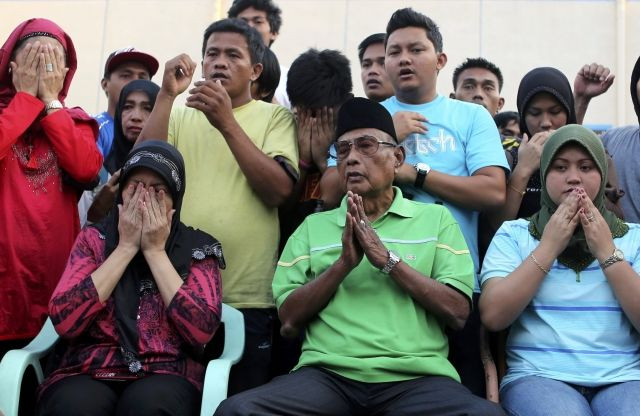UN Chief Calls For Peace In Sabah; Malaysia Wants Intruding Filipino Men To Surrender

The U.N. Secretary General Ban Ki-moon sought an end to the violence in the Malaysian state of Sabah Wednesday, a day after authorities launched a military assault on a group of about 100 Filipino men holed up in a village in the state.
The men, who arrived by boat Feb. 12 in the Lahad Datu town in Sabah, located on Borneo island, identified themselves as descendants of the leaders of the Sulu Sultanate in the southern Philippines, which has a historic claim to the area.
At least, 27 people have been killed since the initially peaceful stand-off erupted into violence.
Local media reports Thursday said the self-proclaimed Sulu Sultan, Jamalul Kiram III, declared a unilateral ceasefire in Sabah to “avoid more bloodshed and crimes,” against Filipinos living in the Malaysian state.
Abraham Idjirani, the sultan’s spokesman said the followers of the sultan will not take any action and will stay wherever they are now, according to a report published by online news portal Rappler, based in Manila.
The declaration of the ceasefire came hours after the U.N. chief’s office said he encouraged all sides to engage in a dialogue to resolve the situation peacefully.
"The Secretary-General expresses concern about the impact this situation may have on the civilian population, including migrants in the region," the statement said. “He urges all parties to facilitate delivery of humanitarian assistance and act in full respect of international human rights norms and standards.”
However, Malaysia's defense minister rejected Kiram's ceasefire offer until the Filipino men, who launched the deadly incursion “surrender unconditionally,” the Rappler report stated quoting Minister Ahmad Zahid Hamidi’s Twitter feed.
Earlier, Malaysia's foreign minister had said the country may seek the extradition of the sultan if Manila failed to take action, Malaysian state news agency Bernama reported.
“The group's leader has made statements that have incited anger and hatred. Does the Philippines have laws to bring him to justice?” Foreign Minister Anifah Aman said late Wednesday on a television talk show.
"If not, maybe we will ask the Philippines to hand him over to us."
“We do not have an extradition treaty with the Philippines but it can be done in the spirit of ASEAN,” he said, referring to the Association of Southeast Asian Nations, of which the two neighbors are members.
Kiram and his aides have been allowed to operate freely from his home in Manila, where he has held press conferences and met with the head of a Muslim rebel group that backs his claims to the Malaysian state of Sabah, according to the Bernama report.
Both Malaysian Prime Minister Najib Razak and Philippines President Benigno Aquino III had initially tried to persuade the Filipino men to stand down, before the violence erupted.
But clashes broke out between the Filipino men and the Malaysian police, leaving eight policemen and 19 Filipinos dead, prompting Malaysian troops to launch a raid Tuesday on the area around Tanduo, where the group was holed up.
On Wednesday, the troops carried out extensive searches saying some of the Filipinos could be hiding among the local population. It remains unclear whether the raid caused any casualties among the intruders.
The Sulu province is situated at the southern portion of the Philippines, located midway between Basilan and Tawi-Tawi.
Lahad Datu, the small village in eastern Malaysia, is less than two hours by speedboat from the southern Philippines.
The Philippines retains an historic, but dormant, claim to Sabah due to the Sulu Sultanate links, according to the CIA World Factbook.
© Copyright IBTimes 2025. All rights reserved.





















